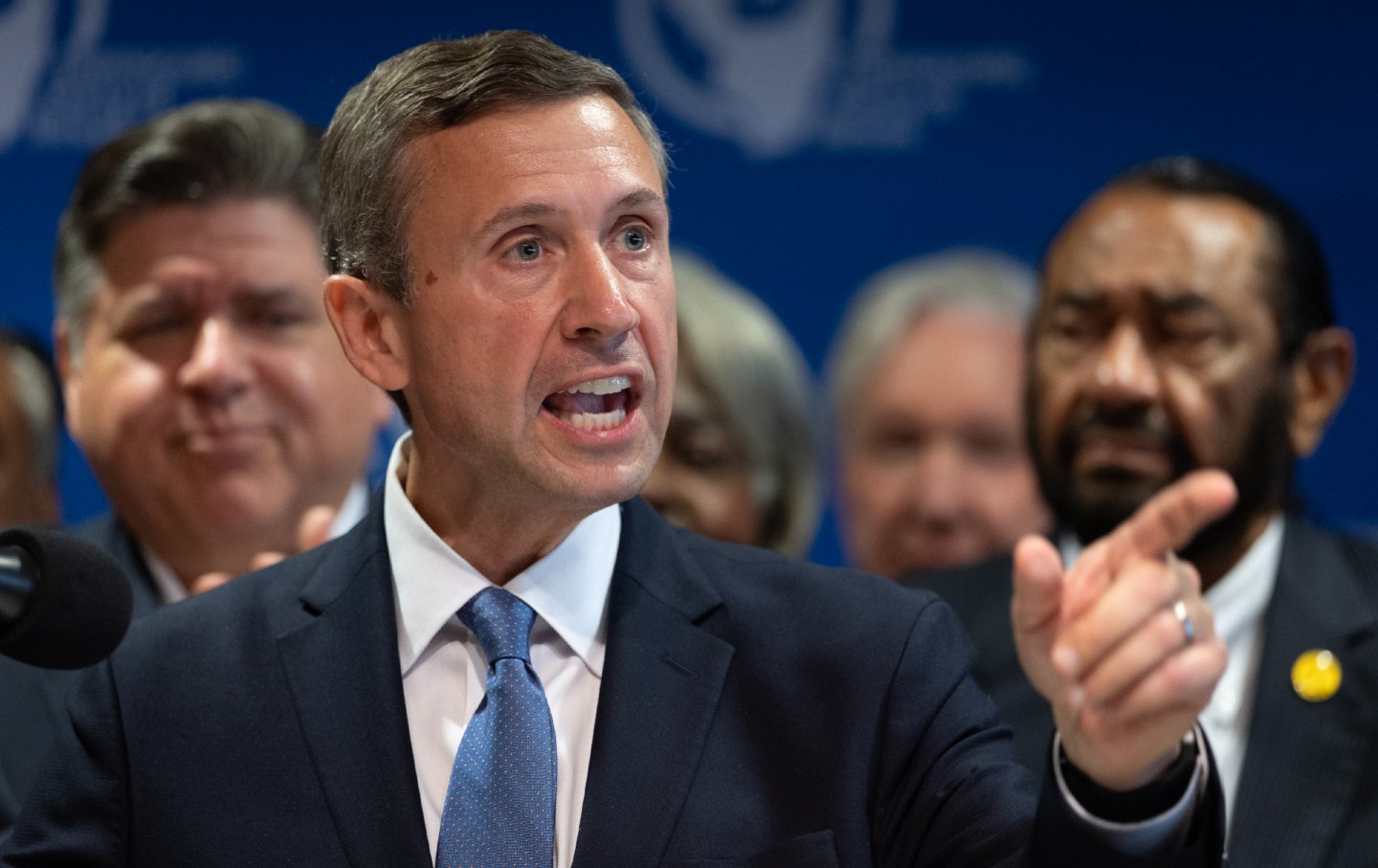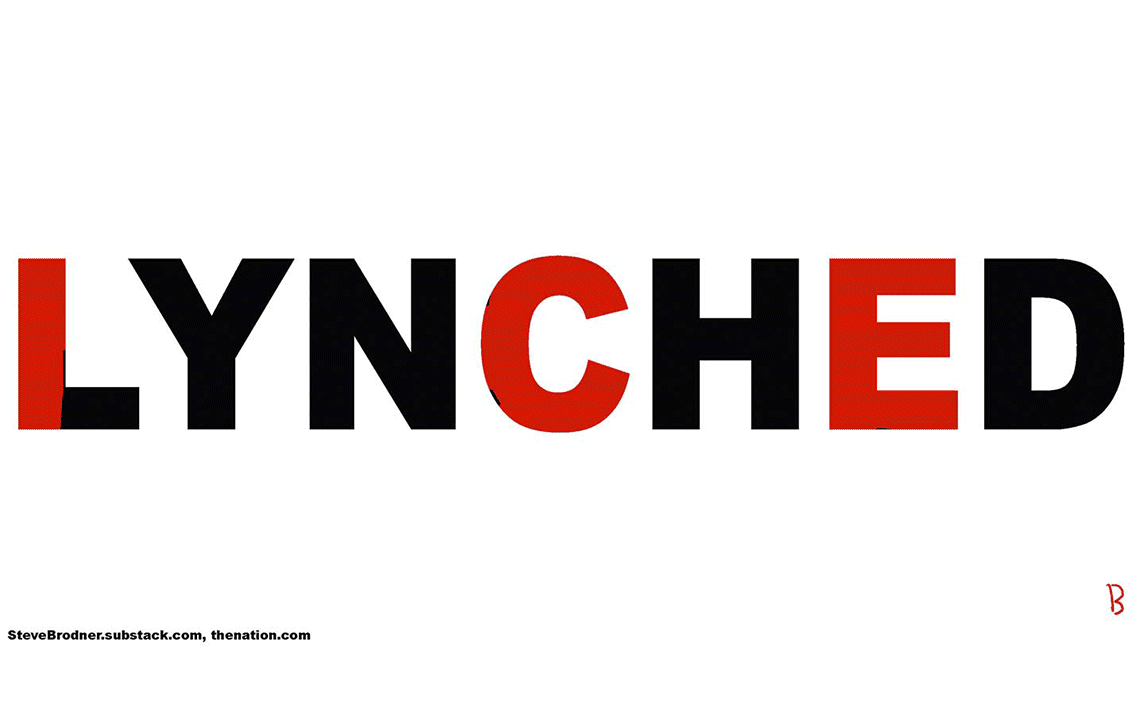A Huge Democratic Victory in Omaha Offers a Lesson for the Party
The Nebraska city swung by 43 points to elect John Ewing Jr. Democrats should study the model he embraced.

For the last several months, the Trump administration’s reckless use of executive power, trade policy, gutting federal agencies and defying court orders has gone largely unchecked. National Democrats have limited means of opposition—so the best hope for accountability will be electoral accountability.
This may help explain why last Tuesday’s election results in America’s 41st biggest city generated such outsized excitement from progressives. John Ewing Jr., a longtime county treasurer, was elected the first Black mayor of Omaha, defeating the incumbent Jean Stothert, who was seeking a fourth term after holding that office since 2013. More than that, Ewing won big, by nearly 13 points, marking a huge shift after Stothert won her last race by 30.
Ewing ran a substantive, highly localized campaign that built upon decades of credibility he earned as a public servant—supplemented by the long-standing work of the Nebraska Democratic Party to build coalitions in a traditionally deep-red state. In swinging this race by 43 points, they have both inspired hope that the political winds may be shifting, and provided a model for Democrats to succeed in 2026 and beyond.
The results in Omaha are meaningful not for the scale of the city but for how it may reflect the country as a whole. Omaha’s congressional seat—Nebraska’s second—is a true swing district, one of only three in the country that voted for Kamala Harris in 2024 while also electing a Republican to Congress. It’s a diverse, medium-size, Midwestern city—and if that isn’t enough to convey its heartland status, it’s nearly in the geographic center of the contiguous United States.
For all of these reasons, it’s instructive for Democrats to understand the strategy of the chair of the Nebraska Democratic Party, who now serves as president of the Association of State Democratic Committees (ASDC) and a DNC vice-chair: Jane Kleeb. In a moment when so much media attention has been focused on internal procedural drama surrounding certain other vice-chairs, Kleeb and the Nebraska Democratic Party have continued their long-standing focus on the day-to-day work.
In the waning days of the Omaha mayoral election, Stothert attempted to negatively polarize voters against Ewing by nationalizing the race—and, in particular, hammering the GOP’s favorite wedge issue target of late: trans people. As my colleague John Nichols wrote about last week for The Nation, this did not work. Instead, Ewing refused to take the bait and kept his focus on tangible municipal issues—such as housing, street paving and even a struggling streetcar project. In a simple graphic released three days before the election, the Nebraska Democratic Party proudly declared: “Jean is focused on potties. John is focused on fixing potholes.”
As thousands of Democrats across the country seek election up and down the ballot in 2026, they too could decline to debate on Republican terms and instead run campaigns relentlessly focused on improving their constituents’ lives.
Successful as this campaign was, it also builds upon statewide efforts from the Nebraska Democratic Party to compete in unfavorable territory. Kleeb has long advocated for Democrats to perform direct outreach to rural voters—and it’s not the same thing as pandering. Instead, it means recognizing real problems that, say, farmers are experiencing and offering practical solutions.
In her words: “In rural and small towns we may not use the word ‘climate change’ in the first five sentences, but everything we’re doing is talking about protecting the land and water.”
And progressives in Nebraska know a thing or two about the value of avoiding toxic political labels. When the navy veteran, mechanic and union leader Dan Osborn ran a populist, independent campaign for Senate last year, the Nebraska Democratic Party stepped aside and chose not to run a candidate. While Osborn and the state party had their differences—and he ultimately lost—this unorthodox strategy showed serious upside. Osborn came closer to defeating the incumbent Republican than any other challenger in the 2024 cycle; now he’s looking at a 2026 run in much more favorable circumstances.
With lessons to learn from the success in Nebraska, it is encouraging that Kleeb now holds a prominent leadership position in the national Democratic Party—the same role that Ken Martin held before he became chair. As head of the ASDC, Kleeb is well positioned to work with all 50 state chairs to get them the resources they need—and it will be all 50, as she and the DNC recently announced that the national organization will be contributing more to state parties as part of a reemerging 50-state strategy.
But even if Kleeb’s ascendance only meant that the Democratic Party got better at competing in Nebraska, it could prove decisive. Given that the House is currently held by Republicans by a handful of seats (give or take whatever disgraced resignations happen between now and next November), the race in Nebraska’s second district could very well be the tipping point for control of the lower chamber. Representative Don Bacon, who held on to his seat by less than two points in the last cycle, may well retire before he has a chance to lose.
Whether the race for Congress in 2026 comes down to Omaha itself or someplace like it, Democratic victories will depend on a nationwide effort to invest as deeply in local concerns as Kleeb and Ewing have. That strategy can be summed up with a mantra that Kleeb has repeated time and time again—what you may call Jane’s refrain: “When we organize everywhere, we can win anywhere!”
Take a stand against Trump and support The Nation!
In this moment of crisis, we need a unified, progressive opposition to Donald Trump.
We’re starting to see one take shape in the streets and at ballot boxes across the country: from New York City mayoral candidate Zohran Mamdani’s campaign focused on affordability, to communities protecting their neighbors from ICE, to the senators opposing arms shipments to Israel.
The Democratic Party has an urgent choice to make: Will it embrace a politics that is principled and popular, or will it continue to insist on losing elections with the out-of-touch elites and consultants that got us here?
At The Nation, we know which side we’re on. Every day, we make the case for a more democratic and equal world by championing progressive leaders, lifting up movements fighting for justice, and exposing the oligarchs and corporations profiting at the expense of us all. Our independent journalism informs and empowers progressives across the country and helps bring this politics to new readers ready to join the fight.
We need your help to continue this work. Will you donate to support The Nation’s independent journalism? Every contribution goes to our award-winning reporting, analysis, and commentary.
Thank you for helping us take on Trump and build the just society we know is possible.
Sincerely,
Bhaskar Sunkara
President, The Nation
More from The Nation

Yes, Texas Representative Nicole Collier Was Under “House Arrest” in the Texas Capitol Yes, Texas Representative Nicole Collier Was Under “House Arrest” in the Texas Capitol
Collier speaks about her surreal ordeal, wherein she refused to sign a permission slip and accept a police escort to leave the Austin statehouse and had to sleep there for two nig...

Democrats Need to Stop Letting Trump Set the Terms of Engagement Democrats Need to Stop Letting Trump Set the Terms of Engagement
With every White House action, from mass deportation to domestic deployment of federal troops the “opposition party” has accepted the premise and failed to offer an alternative.

The DNC Chair Proposes Major Reforms to Limit Big Money The DNC Chair Proposes Major Reforms to Limit Big Money
Party building vs. candidate addiction has never been more urgent.

Solidarity Staircase Solidarity Staircase
The stairways to iconic Park Güell in Barcelona were transformed into a representation of the Palestinian flag , and the plaza above was named “Free Palestine”, as a symbol of supp...

Trump Wants to Make Art Into a Tool of the State Trump Wants to Make Art Into a Tool of the State
In ordering a review of the Smithsonian, the White House wants to use its power to remake our culture—or to reinvigorate a strain in the culture that has been dormant for a long t...



